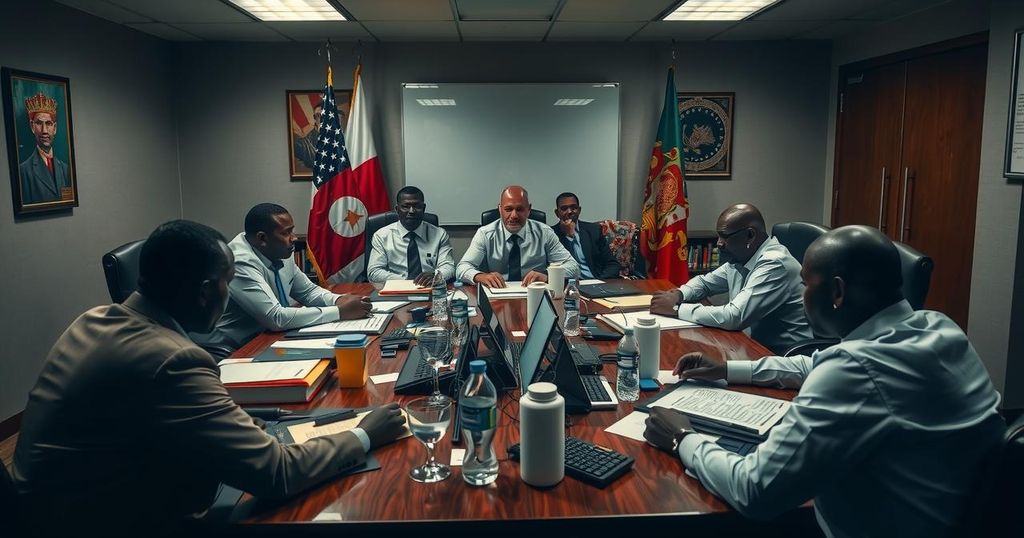South Sudan’s President Salva Kiir held urgent talks with top security officials following a shootout at former spy chief Akol Koor’s home, resulting in four deaths. The violence stemmed from a misunderstanding during Koor’s relocation after his recent dismissal amid coup rumors. Officials assured that Koor and his family were now safe, but the incident highlights ongoing instability facing the country as it confronts delayed elections and internal conflicts.
In response to a recent shootout at the residence of former spy chief Akol Koor, South Sudan’s President Salva Kiir convened an urgent high-level security meeting on Friday. The incident occurred in the capital, Juba, and resulted in the deaths of four individuals, prompting concerns about the nation’s stability amid ongoing power struggles. Authorities characterized the violence as stemming from a “misunderstanding” during an attempted relocation of Koor, who had been under house arrest since his dismissal in October amid coup rumors.
The shooting erupted Thursday evening near Koor’s home, triggering panic within the community. Security forces quickly managed the situation, and spokesperson Lul Ruai Koang reported that Koor would be relocated with additional military protection, while emphasizing that he was not in detention. Following the meeting, officials reassured that Koor and his family were safe, with the area remaining under close watch to ensure public order.
Despite Koor’s contentious past as the head of the National Security Services, his recent sacking and placement under house arrest stirred suspicions of possible insurrections against Kiir’s regime. In light of significant delays in electoral processes—now postponed until December 2026—the situation may further aggravate tensions within this fragile nation, previously scarred by civil war and ongoing instability. The context of South Sudan’s political unrest is underscored by international outcry over its delayed transitional initiatives and human rights issues exposed by the actions of its security services.
The current political climate in South Sudan has been tumultuous, punctuated by internal power struggles, ethnic tensions, and economic hardships. President Salva Kiir’s administration has faced criticism for its inability to stabilize the nation since its independence in 2011. Akol Koor’s departure from his position as the head of the National Security Services has only intensified speculation regarding his ambitions and loyalty to Kiir, leading to fears of potential coups. With upcoming elections now pushed back to 2026, there is increased pressure from the international community for the government to address transitional governance and human rights violations, particularly concerning the actions of the National Security Services, which gained notoriety for their unchecked powers. Overall, the socio-political environment remains fragile, impacting the safety and daily lives of ordinary citizens in South Sudan.
In conclusion, the recent shootout at Akol Koor’s residence illustrates the persistent volatility within South Sudan, marked by tensions among security forces and fears of political upheaval. President Kiir’s urgent response indicates the gravity of the situation as the nation grapples with its complex history and path toward stability. The international community’s concern over the delayed electoral process amplifies the urgency for reforms, underscoring the need for a unified approach to governance and security going forward.
Original Source: www.france24.com







